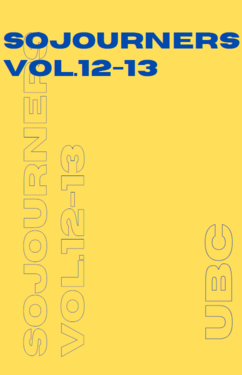“At least we’re in Canada”: A critical perspective applying Du Bois and Simmel to Black African students' identity experiences in Canadian universities
DOI:
https://doi.org/10.14288/soj.v12i1.195976Abstract
Using concepts from theorists W.E.B Du Bois and Georg Simmel, I examine the sociological dimensions to the identity experiences of Black African students as temporary international or permanent immigrants attending universities in Canada. In what ways do social structures in the host country of Canada inhibit positive experiences of Black African students in Canadian universities? Du Bois’ concepts of ‘double consciousness’ and the metaphor of ‘the veil’ highlight the difficulty that Black folks in America experience as they live their identities against and through the eyes of white supremacy. This concept is extended to the experience of Black African students in Canada where Black people are a visible minority and experience racism (Creese, 2020). Further, Simmel’s concept of the ‘blasé attitude’, also referred simply as blasé, is about the sense of indifference personified by individuals living in metropolises due to overstimulation and an overly commodified lifestyle in the city environment. The blasé is applicable to understanding the experience of Black African students in Canadian universities, which are often in metropolitan cities. Although Black African students, especially those who are international, are largely optimistic as they venture into Canadian universities, using the concepts of double consciousness, the veil and the blasé attitude, a socio-cultural reality is revealed that counters the positive image that Canadian universities themselves portray. In this reality, Black African students encounter particular challenges connected to their perceived or self-proclaimed Black African identities, which serve as an impediment to their wellbeing, academic growth and career advancement. Using a critical race theory framework, Du Bois’ concept of double consciousness and the veil, and Simmel’s concept of blasé are used to examine how systems and practices of racism, neo-racism, and attitudes of complacency infringe on Black African students having more holistically positive experiences while studying at Canadian universities, despite the fact that many well-known universities are located in ‘diverse’ or ‘multicultural’ cities in Canada. These concepts are applied to show how certain sociological factors, that is, systems, processes, practices and actions that are already in place, work against Black African identities and function against these students once they enter these settings.
Downloads
Published
Issue
Section
License
Copyright (c) 2021 Sojourners Undergraduate Journal of Sociology

This work is licensed under a Creative Commons Attribution-NonCommercial 4.0 International License.

